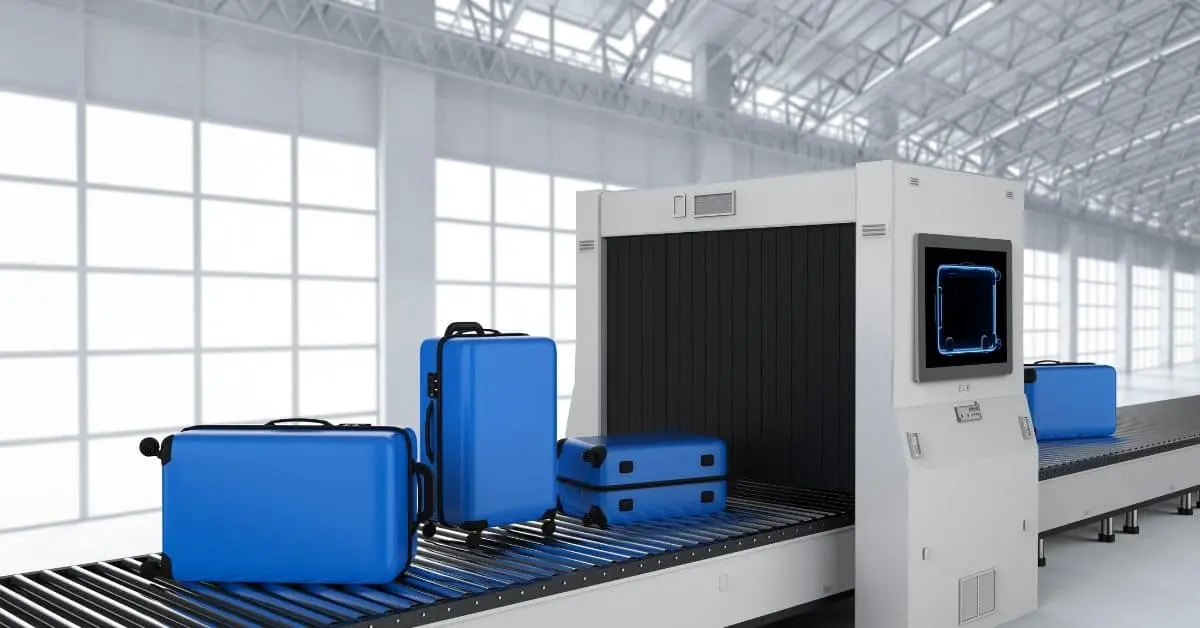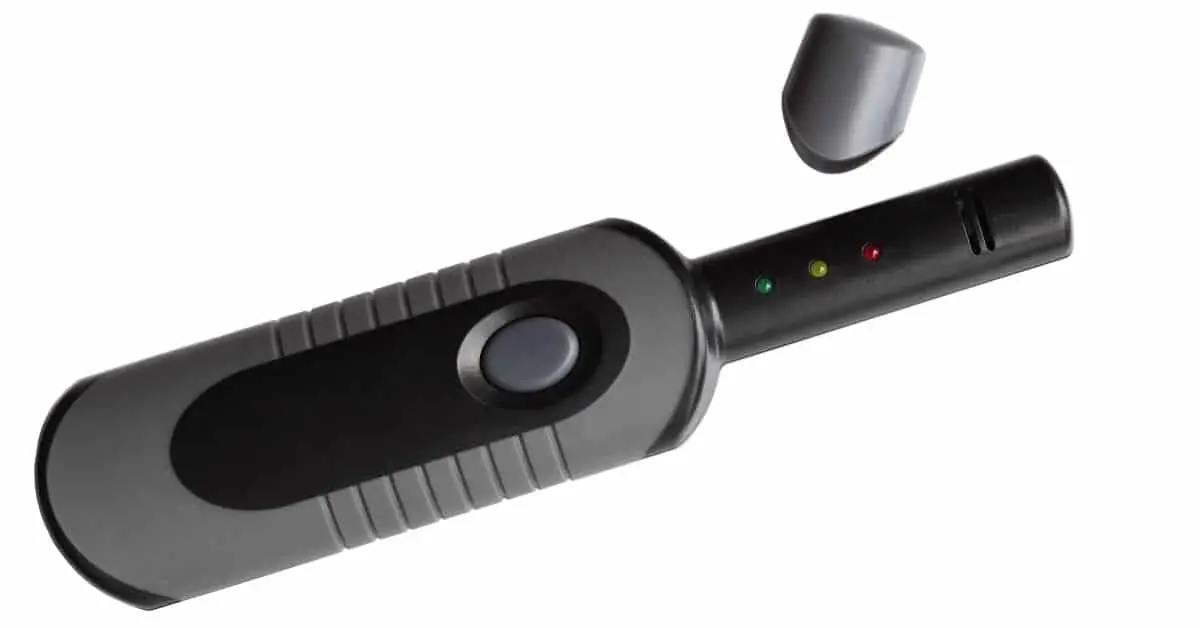You walk through metal detectors on a daily basis and likely don’t even know it. Many stores and buildings have metal detectors for security purposes and to prevent shoplifting. If you have been to a government building or airport, you know the drill of putting all of your materials in a plastic bin to be scanned while you walk through a metal detector. Did you ever wonder why your electronics needed to be kept separate from you during the scan?
Metal detectors have very strong magnetic fields and can easily damage unprotected electronics. However, there are some things you can do to prevent damage.
This article will teach you why metal detectors are dangerous to electronics and what you can do to prevent an accident from happening.
Metal Detectors and Electronics
There are a lot of different myths and stories when it comes to electronics and metal detectors. There are different types of metal detectors for different situations. In an airport, you will be exposed to a metal detector with a strong magnetic field to detect any metal that a person may have.
If you walk through a metal detector in a library or store, it will not be as strong as the commercial airport machine. Because of this, you don’t have to worry about your electronics being impacted.
What Items are Impacted by Metal Detectors?

A metal detector can negatively impact many items. While the severity may vary, you should always be on the side of caution and keep your devices away from strong magnetic fields. Here are some of the most commonly impacted devices.
Computers
Magnets and computers do not go well together. We aren’t talking about simple household magnets, although they can do some damage if intentionally rubbed around the screen or hard drive. The magnets you need to worry about are those with a strong magnetic force, like those in an airport or government building.
Even a small amount of time in a powerful metal detector can be enough to erase or scramble the hard drive on your computer completely. Without this component, your computer is virtually useless.
What do Metal Detectors do to Computers?
If your computer is exposed to a commercial strength metal detector, the damage is likely to be extensive and unrepairable. A strong magnetic field, such as a metal detector, can disable the computer’s hard drive altogether. If this happens, it is unlikely that you will be able to turn on the computer. If you are fortunate enough to be able to power the computer on, you will likely not be able to go through the boot-up process.
The only way to repair a computer that has been exposed to a strong magnetic field is to get the help of a trained computer tech. While there isn’t a way to salvage the data that was on the hard drive, they will be able to put a new hard drive in.
Keeping My Computer Safe
Perhaps you are wondering what you should do to keep your computer safe when faced with a metal detector. The good news is that if you are going through a strong commercial metal detector, you will likely be asked to place your computer in a safe location while you go through the metal detector.
If you are concerned about your computer being near a metal detector or feel that it may be at risk of having a damaged hard drive, there are some things you can do:
- Back everything up before traveling.
- Don’t carry an external hard drive with you.
- Only travel with your computer if it is absolutely necessary.
Phones

Phones typically don’t have the computer’s data, but a strong magnetic field can harm your cell phone.
Are Metal Detectors Bad for Phones?
Phones and computers have similar electronic components. While a phone doesn’t have a hard drive, magnets within the circuit board could be negatively impacted by going through a strong magnetic field.
It could be highly frustrating to have a phone damaged by a metal detector, but it is likely not as big of a deal as a computer hard drive. To be on the safe side, you should make sure your phone goes through the x-ray machine instead of the metal detector with you.
Digging Deeper: Can You Find a Phone with a Metal Detector?
Tablets
Metal detectors can quickly ruin a tablet with exposure. Remember devices, including tablets, have small magnets inside. Just by simply walking through a metal detector, you could cause damage to your tablet that is unable to be repaired.
Portable Speakers
Many people choose to travel with portable speakers. If you take a portable speaker through a metal detector, you may risk damaging the device. Speakers have magnets inside, which the metal detector’s magnetic field can impact. Because of this, it is best to send portable speakers through the x-ray machine.
There are likely many other electronic devices that can be harmed by exposure to a metal detector, but these are the most common. If you are ever in doubt about an electronic device you have, it would be wise to ask the person scanning before you enter a metal detector with it.
(Source: Allianz Travel)
Can Batteries Go Through a Metal Detector?

We know that electronic devices can’t go through metal detectors without damage, but what about batteries? Batteries may be able to safely go through a metal detector if the device they are in is entirely powered off. The magnetic field can disrupt the battery’s charge and completely eliminate the charge if exposed to a metal detector.
You must know that just powering off a device may not be enough to fully protect the battery. The magnetic field in a metal detector is powerful and could still deplete the charge of the battery.
If the Battery is Depleted, Can it Recharge?
Typically, a drained battery can easily be charged. Unfortunately, not all batteries that a metal detector or x-ray machine has depleted can be easily charged. There isn’t an exact reason known for this, but it may have something to do with damage to the cells in the battery.
In some cases, batteries that are depleted by a magnetic force may never be able to charge or charge at all fully. If this is the case, you will likely need to replace the battery for your device.
(Source: New York Computer Help)
Protecting Your Devices
The best thing you can do to protect your devices from being damaged by a metal detector is to make sure it is removed from your body. The magnetic pulses emitted from metal detectors are so intense you will likely not find a case to protect your devices.
When you go through airport security or other security checkpoints with wand metal detectors, you want to make sure your devices aren’t in line with the metal detector. Most places ask you to put your devices into a separate bin that is x-rayed as you walk through the metal detector. Electronics can handle x-rays but no metal detectors.
Travel Insurance
If you believe your electronic devices could be damaged during your travels, it would be best to purchase travel insurance for your devices. When purchasing travel insurance for your devices, you will want to ask these questions:
- What damage is covered? (drops, metal detectors, etc.)
- How much will it cover?
- Does it work internationally?
You may have other questions, but these are going to be essential when it comes to finding the best insurance coverage for your devices during travel. You will also want to check to see what safety precautions need to be in place to ensure the insurance will cover the device.
Digging Deeper: How to Travel With Your Metal Detector
Electronic Devices Installed in The Body

There are options to keep electronic devices out of the metal detector, but what if you have an electronic device in or on your body that cannot be removed? Is it safe for you to go through a metal detector?
Pacemakers and Defibrillators
You should avoid going through a metal detector if you have either of these devices. The strong magnetic field can cause severe damage to the device, putting you in a life-threatening situation. It is important to tell the screeners about these devices before you get near the metal detector. There are other options for screening individuals safely. (Source: Health Facts)
Cochlear Implants
It is safe to go through a metal detector with cochlear implants, but because they are implanted in your body, it is crucial that you let the screeners know. Individuals with these implants should also carry a document verifying the presence of the implants. (Source: Cochlear Implant Online)
Insulin Pumps
Many people with diabetes have begun to use insulin pumps. These devices are implanted on the skin of the individual. It is safe to go through the metal detector with these devices. It is recommended that you not remove them from the x-ray machine. If you aren’t comfortable going through the metal detector with the device, you can also ask for a different screening method. (Source: Medtronic)
Joint Implants
It is safe to go through metal detectors with implants. Most of the implants are metal so that they will set off the alarm, but the magnetic field will not cause and damage to the implants.
If you have any questions about the safety of going through a metal detector with implants, you will want to ask the screeners for advice. They would much rather answer your questions than have the metal detector going off unnecessarily.
Are X-Rays and Metal Detectors the Same?

If you have ever traveled through an airport, you likely know the drill of sending your belongings through an x-ray machine while you go through the metal detector. You may be wondering if they both serve the same purpose, how are your devices safe in an x-ray machine?
X-Ray Machines
X-Ray machines are specifically used to examine the contents of bags and other items. Electronic devices go through the x-ray machine as opposed to metal detectors because there is no magnetic field to worry about. While there are no magnetic fields to worry about, you need to take precautions to protect your devices.
Power Off
You need to make sure you power off your electronic device before sending it through the x-ray machine. Do not just put your device in sleep mode. The x-ray machine may interfere with the battery charge of your device if it Is not entirely off.
Remove from Case
Unless the case you have is approved by the TSA for the x-ray machine, you will need to remove the case. Typically, this applies to computers and tablets. You can safely leave iPods, kindles, and other small devices in your bag.
Even with TSA-approved bags, you will often be asked to remove your computer from the case to ensure proper screening can take place. If you have several electronic devices, it may be best to put them all in one bin away from other items.
Metal Detectors
Electronics should not go through metal detectors because they will be damaged. Metal detectors use a strong magnetic force to detect the presence of metal. The magnetic field will damage any items that include magnets.
(Source: Computer Hope)
Are Handheld Metal Detectors Safe for Electronics?

Many areas have handheld metal detectors that can be used either separately or in conjunction with the walk-through metal detector. Although the magnetic field is not quite as strong, a wand could still cause damage to sensitive electronic devices. Because of this, you should not allow your computer or any other electronic device to come in contact with the metal detector wand. (Source: Indiana University)
Finally – Do Metal Detectors Damage Electronics?
Metal detectors use a powerful magnetic field to detect the presence of metal. Because of this, taking any electronic device through a metal detector is risky. It is especially problematic for computer hard drives because of the magnets included in the device. If you have electronic devices, it is best to send them through the x-ray machine to avoid unnecessary damage.
I hope you got some useful information from this article. If you have any questions or comments please leave them below. Until next time Happy Treasure Hunting!